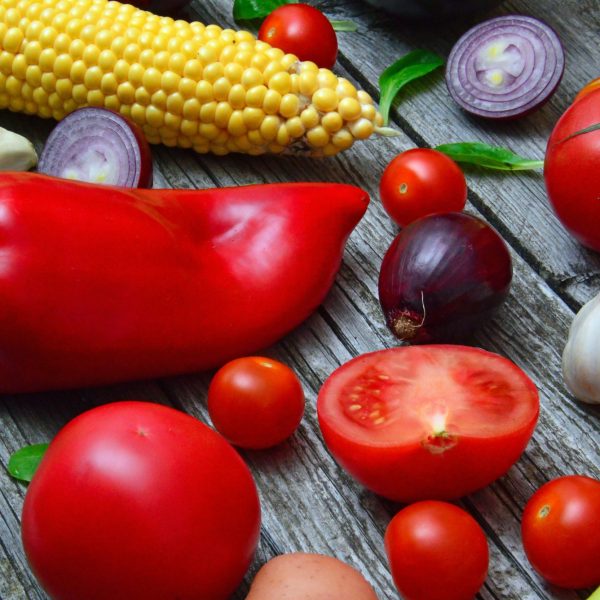Your vitamin and mineral intake is intricately involved in your fertility health. Both the male and female bodies require specific nutrients to promote fertility, conception and pregnancy. Poor nutrition can lead to ovulation problems, menstrual irregularity, low sperm count and motility, along with increased pregnancy risks. This article covers a few of the most important nutrients for fertility, how they work and the best ways to get them.
Vitamin C
For men, vitamin C improves sperm quality, helping to protect against DNA damage linked to miscarriage risk. For women, vitamin C encourages normal hormone levels and has been found to improve fertility in women with Luteal Phase Defect.
Be sure to eat vitamin C rich foods: citrus fruits, papaya, kiwi, cauliflower and broccoli, and take a women’s or men’s multivitamin.
Vitamin E
Research shows vitamin E significantly improves sperm motility and fertility for men. As an antioxidant, vitamin E protects against damage to the lipids (fat cells) in sperm. For women, vitamin E protects egg health and encourages normal endometrial lining thickness.
Vitamin E foods include: fresh nuts and seeds, wheat germ oil, avocado, green leafy veggies and asparagus. Look for a vitamin E with other antioxidants like selenium and alpha lipoic acid, found in a supplement like FertilicaTM Choice Antioxidants.
Zinc
For men, zinc is key to normal testosterone production and sperm formation.
Zinc is found to increase sperm motility, and even improve fertility for men with a history of smoking. (Zinc helps to offset the effects of metals like cadmium found in cigarettes.) For women, zinc encourages regular ovulation and nourishes the ovarian follicles for implantation support.
Eat zinc-rich foods like: cold water fish, oysters, pumpkin seeds, nutritional yeast and wheat germ. Zinc is also available in supplements.
Folate/Folic Acid
Research shows men with diets low in folate have a higher rate of abnormal chromosomes in sperm. In one study, folic acid was shown to increase sperm count when used in combination with zinc for sub-fertile men. For women preparing for pregnancy, the fetus requires folate for proper neural tube development before you even know you’re pregnant.
Folate-rich foods are: dark leafy greens, lentils, beans, avocado, papaya, and broccoli. Folate/folic acid are also in women’s and men’s multivitamins.
Omega 3 fatty acids
As we have shared on this website many times, the right kind of fat is good for fertility! For example, for men, the omega 3 fatty acid, DHA (Docosahexaenoic acid), is vital for sperm development and movement. For women, omega 3 fatty acids promote cervical mucus production and encourage hormone balance. Omega 3’s also ease fertility problems linked to inflammation like endometriosis, PCOS and fibroids.
Good sources of omega-3s are: cold water fish, Cod Liver Oil, walnuts, flax seeds, chia seeds, navy beans, and grass-fed beef.
Vitamin D3/Vitamin K2
As fat-soluble vitamins, vitamin D and K play a vital role in producing sex hormones and regulating cell growth. Early research finds vitamin D enhances sperm quality and motility. For women, vitamin D encourages normal immune response and may prevent uterine fibroid development. Vitamin D and K work together to aid calcium transportation to the teeth and bones. Research into vitamin K and fertility is still new, but the early tests find it plays a role in fetal development.
Vitamin D is available from: cod liver oil, cold water fish, organic dairy, eggs, through supplements and exposure to sunlight.
Vitamin K2 is available in: fermented foods like natto, miso, cultured vegetables and in supplements.
Focus on Diet & Add Foundational Supplements!
While the role of nutrition in reproductive health is complex, getting enough nutrients while working on fertility doesn’t have to be hard. Following a Fertility Diet and taking foundational supplements takes care of the majority of nutrition-related fertility challenges. I always suggest starting with diet improvements. However, there is no question that high-quality supplements provide extra insurance that your body gets what it needs through all stages of your fertility health journey.
Learn more:
- The Natural Fertility Diet: How to Eat for Optimal Fertility
- See FertilicaTM Fertile Woman One Daily, Cod Liver Oil, Vitamin D & K2 and Choice Antioxidants in our NEW Fertility Foundation Kit.
- Moslemi, M. et al. (2011). Selenium–vitamin E supplementation in infertile men: effects on semen parameters and pregnancy rate. Int. J Gen. Med; 4: 99–104. Retrieved from: https://www.ncbi.nlm.nih.gov/pmc/articles/PMC3048346/
- Chandler, B. (2018, Aug.). What Vitamins Do Men Need For Healthy Sperm. Retrieved from: https://healthyeating.sfgate.com/vitamins-men-need-healthy-sperm-5968.html
- Barton-Schuster, D. (2018). Top Ten Natural Fertility Boosters. Retrieved from: http://natural-fertility-info.com/top-10-natural-fertility-boosters.html
- Abernathy, S. (2018). Can Vitamin D Prevent Uterine Fibroids? Retrieved from: https://natural-fertility-info.com/vitamin-d-and-uterine-fibroids.html
- Gurevich, R. (2018, Jan.). The Importance of Folic Acid in Female and Male Fertility. Retrieved from: https://www.verywellfamily.com/folic-acid-for-female-and-male-fertility-1959878
- Risso, A. et al. (2016 July-Sept.). Effect of Long-Term Fish Oil Supplementation on Semen Quality and Serum Testosterone Concentrations in Male Dogs. Int. J. Fertil. Steril; 10(2): 223–231. Retrieved from: https://www.ncbi.nlm.nih.gov/pmc/articles/PMC4948075/
- Blomberg, J. et al. (2011). Vitamin D is positively associated with sperm motility and increases intracellular calcium in human spermatozoa. Human Reproduction; 26 (6): 1307-1317. Retrieved from: https://academic.oup.com/humrep/article/26/6/1307/2913983
- Nakagawa, K. et al. (2014, Aug.). Vitamin K2 biosynthetic enzyme, UBIAD1 is essential for embryonic development of mice. PLoS One. 2014 Aug 15;9(8): e104078. Retrieved from: https://www.ncbi.nlm.nih.gov/pubmed/25127365





